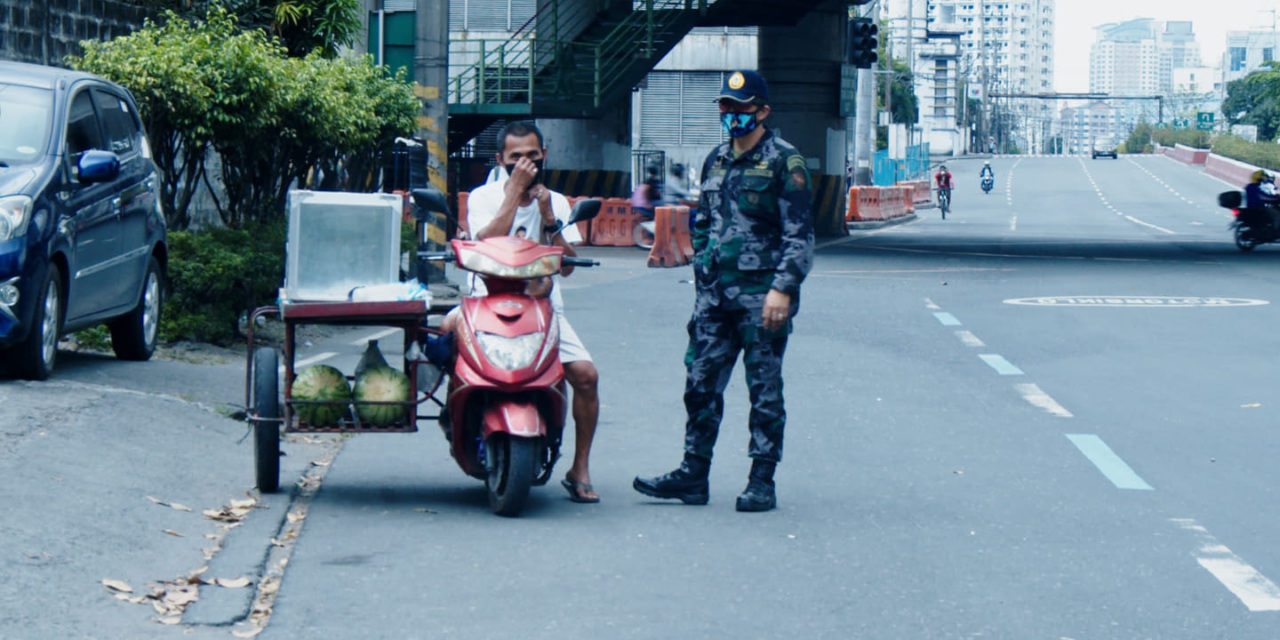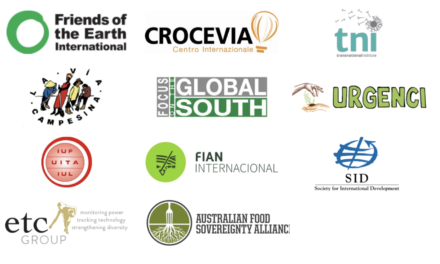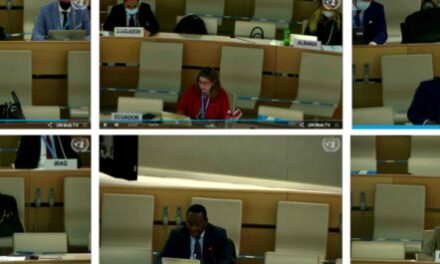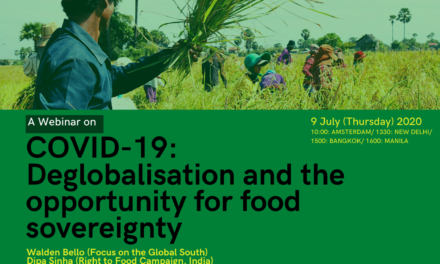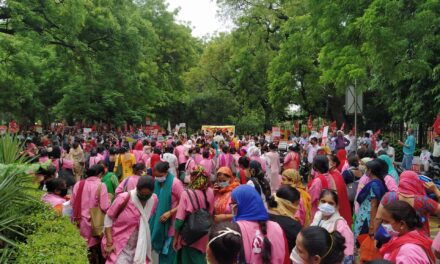17 April 2020
The Luzon-wide lockdown implemented by the Duterte administration has been in place for over a month now. On April 7, with the number of cases and deaths rising, the government extended the enhanced community quarantine (ECQ) until the end of the month.As of April 16 the Department of Health has reported the number of confirmed Covid-19-positive cases at5,662 with the death toll at 362.
It is clearthatwe are still very much in the middle of an unprecedented health emergency. The experts talk of the needto “flatten the curve”- to arrest the rise of cases- so the public health system will not be overwhelmed by the pandemic. Mass testing is still the key for health officials to determine who is infected in order to isolate and provide needed treatment to these patients.A central component of the efforts to stop the spread of the disease is putting in placel ockdown and community quarantine measures.
Lockdown and daily wage earners
Daily wage earners and those working in the informal sector are among those most affected by these measures. From the start, workers have expressed fears on how they would survive the crisis. While they understand the need to stay at home and support the lockdown, they also realize the implication of these measures on their ability to earn a living to support their needs during the crisis. In this situation, they turn to the government for support both in terms of short term and immediate economic relief but also longer term programs to sustain jobs and livelihoods.
In an online discussion organized by In Defense of Human Rights and Dignity Movement (IDEFEND) and the Philippine Alliance of Human Rights Advocacates (PAHRA), key leaders from the workersmovement shed light on the impacts of Covid-19 on workers, both in the formal and informal sectors. The discussion zeroed in as well on the extent of government’s response to the crisis, and the more long term impact on the economy and on workers. Reflections were also shared on possible ways forward in advancing a progressive agenda when the crisis is over.
“When we talk about the labor force, we are talking here of over 40 million people employed both in the formal and informal sectors,” said Wilson Fortaleza of Partido Manggagawa (Workers Party) putting the problem in its proper context.
“Roughly 60 % are in the formal sector and 40 % informal, but there are also those workers who are considered informal within the formal meaning those working in companies but without contracts. “Workers in the Informal sector, which includes transport workers, street vendors but also farmers and fishers, have always been vulnerable. They have low pay and they work in poor conditions. But now it seems like both formal and informal workers now suffer the same fate, both feeling the impacts of the crisis” added Fortaleza.
“When we look closely at the conditions of workers in the informal sector, and daily wage earners- we see how dire the situation is. Even prior to COVID-19 we were already struggling to earn enough living to sustain our daily needs. Now we cannot even go out to do that and we are just waiting for assistance from government,” lamented informal worker Kathy Regala.
This subsistence living becomes even more challenging in the midst of a health emergency. “We know that prior to the lockdown low wages are already a problem, we know that wages are only enough to subsist on a daily basis. There are no savings to speak of, therefore no lifelines when emergency hits” stressed labor lawyer Tony Salvador of PAHRA. “These workers now rely on support from family as their lifeline. But our society cannot depend on this system alone, we need to address the root causes and most basic problem of the lack of economic power of working class” added Salvador.
Another dimension to coping with the crisis in the Philippines is the heavy-handed approach of the Duterte Government in enforcing the lockdown. Activist-lawyer Aaron Pedrosa of Sanlakas and Counsel for the Metro Manila Vendors Association reported “yesterday 15 vendors were released after spending four days in detention for supposedly violating the quarantine rules. The police used the enhanced community quarantine as a license to violate the right to means of subsistence, when there is still no alternative and relief from government.” Sadly this is not an isolated case added Pedrosa. “In San Roque community in Quezon City, we witnessed how the police violently dispersed a small protest action and even dismantled community kitchens,” added Pedrosa.
Chaotic and Inadequate Government response
Over the last weeks the Government has scrambled to respond to the crisis. An Interagency Task Force (IATF) was formed which recommended the Luzon-wide lockdown but by that time the number of cases have already grown exponentially. Upon the recommendation of the IATF, Duterte obtained emergency powers from Congress, an imprimatur for the re-allocation of around 275 billion Pesos to respond to the COVID-19 pandemic. A National Action Plan (NAP) was put in place with retired General and former Armed Forces Chief of Staff Carlito Galvez at the helm. Relief and support programs both existing and new ones, were announced to address the socio-economic impacts of the crisis. The Labor Department announced an emergency employment program called TUPAD for displaced workers, underemployed and seasonal workers, as well as an emergency financial relief package amounting to five thousand pesos for workers in the formal sector. The Social Welfare Department on the other hand launched a Social Amelioration Program (SAP), an emergency subsidy program amounting to between five to eight thousand pesos to “low-income families or those on subsistence economy or workers in the informal economy, and with members belonging to the vulnerable sector, assessed to be the most-affected by the declaration given their existing life situations or circumstances.”
A number of concerns have been raised over the rollout of these programs including the lack of information and guidance on how to access these subsidies, and qualification of beneficiaries. With regard to the assistance for formal workers one issue raised is that the program is contingent on the employer as Atty. Pedrosa explained: “the employer will access these funds from government. Not many employers do this and seek assistance for their workers.” Atty Salvador added that they have received reports from outside Manila that the DOLE is saying there is no more money for the program.”
“The implementation is in gridlock because of so many requirements and the process is so cumbersome,” asserted Fortaleza. “These programs can be accessed through so many ways. If you belong to this sector this is for you, if you are a solo parent or a senior citizen then there is another program for you. The government should have should have put in place one system applicable for all. Let it deal with the auditing later. We have been in lockdown for almost a month already and the relief has not reached those in need.”
The demand for universal application of the relief programs however should not discount the fact that there are certain sectors and groups that are most vulnerable including women and indigenous peoples. “There are no special allocations on the basis of requirements of women. There should be relief packages that cater to the specific needs of women for example for natal care or pre-natal care, and hygiene,” said Pedrosa.
In a separate interview fisher leader Pablo Rosales, described the impact on small fishers who count among the most impoverished and marginalized sectors in the Philippines. “Many are finding it difficult to engage in fishing at this time because on the one hand funds for gasoline and other operational costs are limited, and the markets are closed. For those who are able to fish they are only able to earn around 100-300 pesos per day (US$2-6), which is clearly not enough to sustain the needs of the family.”
Long-term impact on workers
The UNDP estimates the impact to be as much as 200 billion in developing countries as it warns of not only the health crisis in the short term but of a devastating social and economic crisis over the months and years to come.
The main sectors to be hardest hit are tourism, and manufacturing, particularly those with strong trade and production linkages to China. For tourism the revenue declines are expected to be substantial particularly for countries dependent on visitors from China. Countries like Thailand, Cambodia, Singapore, Vietnam and the Philippines are expected see losses amounting to billions of dollars. ADB estimates a loss of $15-35 billion for PRC, and $19-45 billion in tourism receipts for the rest of developing Asia.
Agriculture and Mining will also be hard hit with contractions in this sector estimated to be around (as percentage of GDP): Cambodia (0.89), Vietnam (0.43), Lao PDR (0.35), Malaysia (0.34), Indonesia (0.25 percent), Thailand (0.23), Philippines (0.16), and India (0.06) under a long containment scenario. Losses in the agriculture and mining sector for these countries are estimated to be anywhere between 200 million to 1.5 billion USD.
Workers Demands and the Progressive Agenda
“The situation has further exposed the many problems with the system with the long-standing issue of the lack of protection for workers,” said Fortaleza. It however “reaffirms the validity and justness of the demand of workers for living wage, enough budget for health and housing for agriculture, support for poor and marginalized,” added Pedrosa.
The workers are proposing nothing less than a restructuring of the economy. “We can start with a reworking of the current budget,” asserted Fortaleza. “The 200 billion pesos re-allocated for Covid-19 response represents just 5 % of the 4.1 trillion national budget. The budget should be redirected away from big infrastructure programs like the building of roads, bridges and airports, to healing and recovery,” he concluded.
“The inadequacy and the weaknesses of our public health system have also been exposed,” said Atty. Salvador. “We can draw lessons from countries Cuba and Vietnam for example, that have massively invested in their health care system and how they are now reaping the benefit of these investments,” Salvador concluded.
“We are calling for socialized solutions, where people are working together with government, using public money to find solutions to the problems we are facing, The crisis is an opportunity to begin implementing socialized solutions- in housing, in healthcare, in social services, because these are what we will need post-Covid-19,”concluded Pedrosa.
*Joseph Purugganan is Head of the Philippines office at Focus on the Global South
About the featured photo: Informal worker doing food deliveries stopped by police amid lockdown. Photo by JL Burgos
.

